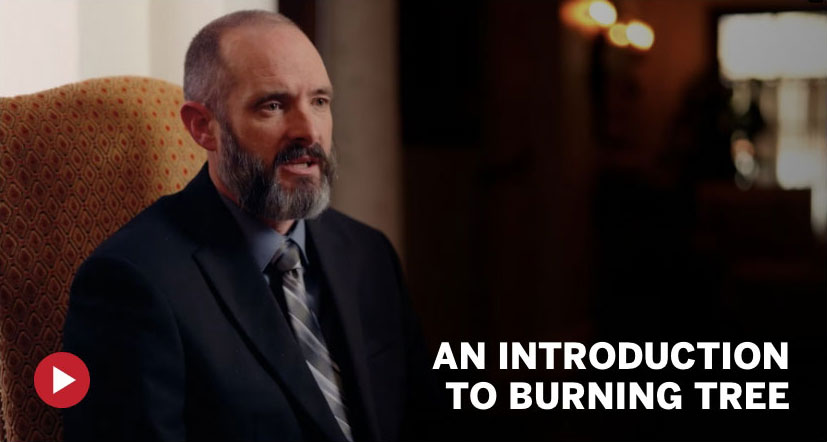Long-Term Addiction Treatment Referrals for Divorce & Family Attorneys
Divorce and family law attorneys often work closely with clients during some of the most challenging periods of their lives. These attorneys are in a unique position to observe behaviors and circumstances that may indicate a need for long-term, chronic addiction treatment. There are several circumstances under which they might make such a referral, along with observations that could inform their decision to act.
Who We Are
Burning Tree Ranch is a specialty program dedicated to the treatment of chronic addiction and mental health. Our program is long-term, progress-based, and highly intensive. Since 1999, we have supported countless referring professionals in delivering ethical, high-quality solutions to the clients and families they represent.
Circumstances for Referral to Long-Term Treatment
Child Custody Concerns
When substance use disorder appears to compromise a client's ability to provide a safe and stable environment for their children, an attorney may recommend treatment as a necessary step to retain or regain custody.
Marital Breakdown
If substance abuse is a contributing factor to the breakdown of the marriage, an attorney might suggest addiction treatment as part of a broader strategy to address the client's challenges and potentially facilitate more amicable settlement negotiations.
Financial Mismanagement
Observing that a client's addiction is leading to financial irresponsibility or mismanagement, which could affect the outcome of divorce settlements or the economic stability of the family.
Legal Strategy for Settlement
Recommending treatment as part of a legal strategy to demonstrate the client's commitment to change, which might positively influence divorce proceedings, especially in negotiations related to spousal support and asset division.
Protecting the Client’s Future Interests
Recognizing that addressing substance use disorder is crucial for the client’s long-term well-being and legal interests, including future relationships with their children and financial stability.
Observations Informing the Need
In these scenarios, a divorce or family law attorney’s referral to addiction treatment is motivated by a combination of legal strategy and a genuine concern for the client’s and their family’s well-being. By addressing the root cause of many disputes and legal challenges, treatment can help resolve current legal issues more favorably and lay the groundwork for a more stable and healthy future for the client and their family.
- Erratic Behavior: Noticing erratic or unpredictable behavior during meetings or communications that may indicate substance abuse issues.
- Physical Symptoms: Observing physical symptoms or health issues that are commonly associated with long-term substance abuse, such as significant weight loss, unexplained injuries, or poor hygiene.
- Impact on Family Dynamics: Hearing accounts or witnessing first-hand the negative effects of the client’s substance use on family members, including stress, conflict, or neglect.
- Legal and Financial Difficulties: Learning of legal issues, such as DUI charges or financial problems that stem from substance use, which could affect the client’s legal standing or financial division in divorce proceedings.
- Self-Disclosure or Family Reports: Receiving direct disclosures from the client about their struggles with addiction or being informed by family members of the client’s substance use issues.

From Legal Strategies to Life Support: The Expansive Role of Divorce & Family Law Attorneys
The responsibility of a divorce or family law attorney to recommend long-term chronic addiction treatment to a client is primarily guided by ethical considerations, a commitment to the client’s overall well-being, and the attorney’s professional judgment regarding the best interests of the client and their family. While not a formal legal obligation, this responsibility is deeply rooted in the broader context of providing comprehensive legal counsel.
Ethical Consideration
Attorneys are ethically bound to act in the best interests of their clients. When substance use disorder impacts legal matters such as divorce or child custody, suggesting addiction treatment may align with promoting the client’s well-being and legal interests.
Any recommendation for addiction treatment must be made with a complete understanding of the sensitive nature of addiction, respecting the client’s privacy and dignity.
Professional Judgment
Divorce and family law attorneys often adopt a holistic approach to legal counsel, considering the personal and familial dynamics at play. Recommending addiction treatment might be part of ensuring that legal strategies align with the client’s long-term health and family stability.
Attorneys may observe that a client’s substance use disorder could adversely affect the outcomes of divorce or custody proceedings. In such cases, treatment could benefit the client personally and strategically improve their legal standing.
Commitment to Client and Family Well-being
In family law, the attorney must navigate complex family dynamics where addiction can have significant repercussions. Advocating for treatment acknowledges the interconnectedness of the client’s health and family relationships.
In cases involving children, the attorney’s responsibility extends to considering the children’s well-being. Recommending treatment for a parent struggling with addiction can be crucial in ensuring a safe and stable environment for the children.
Practical Considerations
While making treatment recommendations, attorneys can provide clients with resources or referrals to specialized professionals, thus extending support beyond legal advice.
Attorneys may collaborate with therapists, counselors, or addiction specialists to create a support network that addresses the client’s legal and health-related needs.

Motivating Change: Divorce and Family Law
Divorce and family law attorneys, as trusted professionals, can play a significant role in motivating a client to seek and complete treatment for substance use disorder (SUD), especially when it aligns with protecting the family’s best interests. Here’s how they might create motivation and leverage for treatment:
CREATING MOTIVATION FOR TREATMENT
- Highlighting the Impact on Custody and Visitation: Attorneys can explain how undergoing and completing treatment can positively influence custody and visitation arrangements. Demonstrating a commitment to recovery can be a decisive factor in legal decisions about a child’s welfare.
- Framing Treatment as a Step Towards Resolution: In the emotionally charged atmosphere of divorce or family disputes, attorneys can motivate clients by presenting treatment as a constructive step towards resolving conflicts and achieving a more amicable settlement.
- Emphasizing Long-Term Family Relationships: Attorneys can highlight the long-term benefits of treatment for maintaining healthy relationships with family members, especially children. This perspective can motivate clients to seek treatment to repair and strengthen these bonds.
- Leveraging Legal Outcomes: Discussing how treatment can impact the legal outcomes of divorce or custody battles can serve as motivation. The prospect of more favorable outcomes can encourage clients to consider treatment seriously.
Incorporating Leverage for Treatment
- Conditional Agreements: Attorneys can negotiate agreements where specific favorable legal outcomes (such as custody or property division) are contingent upon the client’s treatment program completion. This creates a legal incentive for undergoing treatment.
- Mediation and Settlement Discussions: During these discussions, attorneys can advocate for including treatment as part of the settlement, with specific terms outlined to ensure compliance and completion of the program.
- Collaborating with Other Professionals: Attorneys can work with therapists, counselors, or mediators to develop a comprehensive plan that includes treatment as a critical component. This multidisciplinary approach can provide the client with a clear path forward, combining legal and therapeutic support.
- Monitoring Compliance: Setting up mechanisms to monitor the client’s compliance with treatment as part of legal agreements can serve as leverage. Regular updates to the court or involved parties can keep the client accountable.
- Educating on Consequences: Communicating the potential legal consequences of failing to seek treatment, such as the loss of custody or unfavorable financial settlements, can motivate clients to engage with and complete treatment programs.
By utilizing these strategies, divorce and family law attorneys can motivate their clients to pursue treatment, not just for legal advantages but as a crucial step towards personal recovery and restoring family harmony. This approach underscores the attorney’s role in serving the family’s best interests, advocating for solutions that offer long-term benefits beyond the immediate legal challenges
Considering Long-Term Treatment for Your Client
The Need to Act
What are the circumstances under which you may refer a person to long-term, chronic addiction treatment? What are you observing that informs you of the need to act?
Fiduciary Duty
Do you have a moral or fiduciary responsibility to make a recommendation for long–term chronic addiction treatment for your client?
Motivation for Completing Treatment
What motivation for treatment might you be able to create as a trusted professional serving a family’s best interest? How might you incorporate leverage for the client to go and complete treatment?

We've Worked Closely with Legal Professionals to Refer Clients to Burning Tree for Long-Term Treatment
How Do I Know If My Loved One is a Fit for Burning Tree Ranch?
Authentic Long-Term Treatment
Burning Tree specializes in treatment for Chronic Relapse
We understand the complex, multi-faceted issues many of our families face when it comes to addiction. The circumstances of long-term residential treatment allow us to create a treatment program unlike anything else in the world.
Operating outside the limitations of a traditional 30, 60 or 90-day format, Burning Tree adheres to progress-based metrics that inform the clinical treatment team of the unique mental, emotional and spiritual needs of the individual.
We are the only treatment center in the United States that combines time-intensive residential treatment with a therapeutically coordinated aftercare program focused singularly on the treatment of chronic relapsers.
Featured In Top Publications













